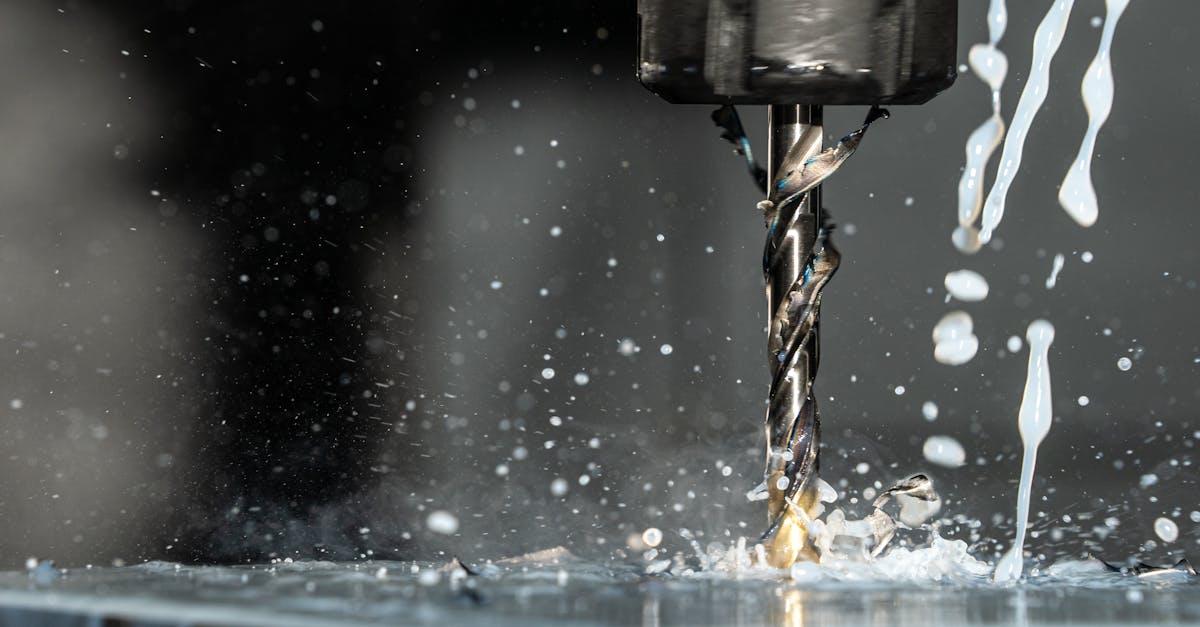What does a CNC machinist do?

Table Of Contents
Problem Solving
Problem solving is a crucial aspect of a CNC machinist's role. These professionals are tasked with analyzing complex situations and devising effective solutions to ensure the smooth operation of the machinery. Whether it involves optimizing cutting conditions or addressing unexpected issues during the production process, CNC machinists need to think quickly and make informed decisions to keep the equipment running efficiently.
In addition to troubleshooting machine errors, CNC machinists also play a key role in making necessary adjustments to the equipment. This may involve calibrating tools, adjusting parameters, or fine-tuning the machine settings to achieve optimal results. By effectively problem-solving and implementing corrective measures, CNC machinists contribute to the overall productivity and success of the manufacturing process.
Troubleshooting machine errors and making adjustments
Troubleshooting machine errors is a crucial aspect of a CNC machinist's role. When a machine malfunctions or encounters an error during operation, it is the machinist's responsibility to identify the root cause of the issue. This involves a systematic approach of diagnosing the problem, which may include examining the machine's components, reviewing error logs, and running diagnostic tests to pinpoint the exact source of the error.
Once the issue has been identified, the CNC machinist must then make the necessary adjustments to correct the problem. This may involve recalibrating the machine, replacing faulty parts, or reprogramming the system to ensure it operates correctly. Attention to detail and a solid understanding of the machine's functionality are essential in effectively troubleshooting errors and ensuring the smooth operation of the CNC equipment.
Safety Procedures
Safety procedures are a crucial aspect of a CNC machinist's role to ensure a safe working environment. Machinists must follow established protocols to minimize the risk of accidents and injuries. This includes wearing appropriate personal protective equipment, such as safety glasses, gloves, and ear protection, as well as ensuring that all safety guards on the machines are in place and functioning properly.
Additionally, machinists must be vigilant in identifying and addressing potential safety hazards in the machine shop. This may involve keeping work areas clean and organized, properly storing tools and materials, and being aware of any potential risks associated with specific machining processes. By adhering to safety procedures and guidelines, CNC machinists can help prevent accidents and create a secure working environment for themselves and their colleagues.
Following protocols to maintain a safe working environment
Maintaining a safe working environment is paramount for CNC machinists to ensure the well-being of themselves and their colleagues. Adhering to safety protocols not only safeguards individuals from potential hazards but also contributes to the overall efficiency of the machining process. By following established guidelines and procedures, machinists mitigate risks and create a secure workspace conducive to productive operations.
Safety measures encompass a wide range of practices, from wearing appropriate personal protective equipment to operating machinery in accordance with established rules. Machinists must be vigilant in identifying potential hazards and taking necessary precautions to prevent accidents. Regular inspections of equipment, adherence to safety guidelines, and active communication among team members all play vital roles in maintaining a safe working environment within a CNC machining setting.
Documentation
Documentation plays a crucial role in the day-to-day operations of a CNC machinist. It involves recording essential production data and maintaining detailed logs of all activities carried out. By diligently documenting each step of the machining process, machinists can track the progress of a job, troubleshoot any issues that may arise, and make informed decisions based on past performance.
Accurate and thorough documentation also serves as a valuable resource for quality control purposes, allowing machinists to review historical data to identify patterns or trends that could impact future projects. Additionally, detailed documentation is essential for compliance with industry regulations and standards, ensuring that the machining process meets all necessary requirements. By maintaining comprehensive records, CNC machinists can enhance productivity, minimize errors, and foster continuous improvement within their operations.
Recording production data and maintaining logs
Recording production data and maintaining logs are crucial aspects of the CNC machinist's role. By accurately documenting production data, machinists can track the progress of a project, identify any inefficiencies, and make necessary adjustments to optimize output. These logs serve as a valuable reference point for assessing the performance of the machines and the overall production process.
Additionally, maintaining detailed records allows CNC machinists to quickly troubleshoot any issues that may arise during the machining process. By referring back to the logs, machinists can pinpoint the source of errors, address them promptly, and ensure that the machines are operating at peak efficiency. This proactive approach not only minimizes downtime but also enhances the overall productivity and quality of the output.
FAQS
What is the role of a CNC machinist?
A CNC machinist operates computer numerical control (CNC) machines to produce precision parts and components according to engineering specifications.
What skills are required to become a CNC machinist?
To excel as a CNC machinist, one needs strong technical knowledge, problem-solving abilities, attention to detail, and the ability to interpret technical drawings.
What type of machines does a CNC machinist work with?
CNC machinists work with various types of CNC machines, such as lathes, mills, routers, and grinders, to cut, shape, and finish materials like metal and plastic.
How important is safety in the work of a CNC machinist?
Safety is paramount in the work of a CNC machinist. Following safety protocols, wearing appropriate protective gear, and ensuring a safe working environment are crucial aspects of the job.
Is documentation important for a CNC machinist?
Yes, documentation is vital for a CNC machinist. They are responsible for recording production data, maintaining logs of operations, and ensuring traceability of the manufacturing process.